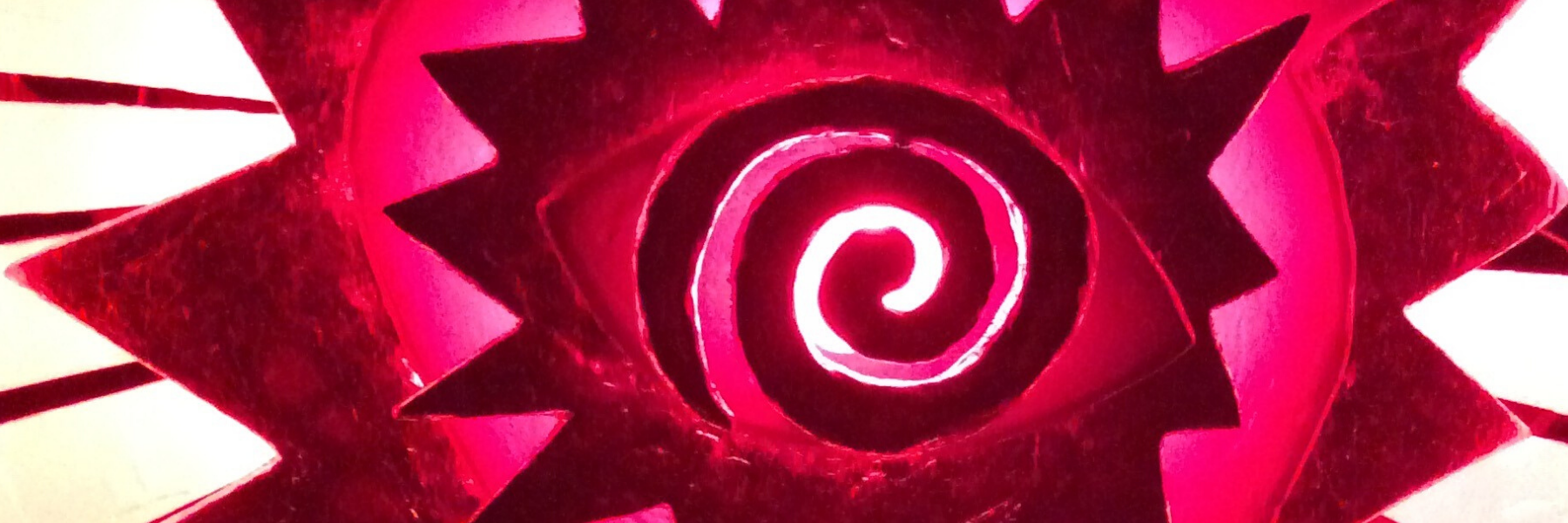
THE PRIMITIVE INTERGALACTIC SCHOOL OF ART
I would be honored to be classified as a “neanderthal artist.” After all, my 23 and Me analysis tells me that I have more Neanderthal genes than 70% of those they test. I’m trying to make sense of my world the best way I can whilst I drag my knuckles along the ground behind me. My art is my attempt to make meaning, in the context of change, my environment, and always love. Whatever it is that drives me to make art is simple and primitive – I don’t ever want to lose the pure delight that a child has when making art – minus the pressure of having to place art into the marketplace or to fit into some genre or category. I’ve tried imagining where my art fits into the a genre of art, but always land on the descriptor “Primitive Intergalactic” School of Art. I conjure this as my school of art because that is how I imagine my art and my writing to be.
prim·i·tive /ˈprimədiv
late Middle English (in the sense ‘original, not derivative’): from Old French primitif, -ive, from Latin primitivus ‘first of its kind’, from primus ‘first’
in·ter·ga·lac·tic | \ ˌin-tər-gə-ˈlak-tik
vast spaces between great celestial bodies; the voidness that houses our realities
“the big empty” that ain’t empty; not a negation of existence but rather the undifferentiated ground out of which all perceived entities, distinctions, and notions of “reality” arise.
My “intergalactic” influence is fueled by gazing up into the amazing Michigan night skies of my childhood, and Ray Bradbury, Kurt Vonnegut, Jules Verne, Donald Adams, and Carl Sagan. I have, from a very young age, been enthralled while looking up into the night sky and seeing stars from millions of miles away fill our night sky. “Science Fiction” is such a wonderful way of imagining brighter futures, and sorting out how we might fit into the big picture of the universe. An opossum convinced me to write a science fiction epic that now fans the flames of all my art. I love animals – they are such great teachers and champions of love – and notice how their seemingly “primitive” state of being is actually far more advanced than how we humans choose to exist on this precious planet.
Materials List for a Primitive Intergalactic Artist
- Rough edges and beautiful cracks
- Forgotten Wood
- Homemade Hardware
- Loose Variances
- A whole lotta gesso
- A whole lotta sandpaper
- A whole lotta wood glue
- Wiring that would give Nicola Tesla a run for his money
- A whole lotta love
How I love the light within and without
Throughout my life, I have found myself living and working in some rather unusual spaces: sleeping in a drawer or bathtub as a baby on Bleeker Street in Greenwich Village, later in closets, garden sheds, and garages in California. I have been required by financial circumstances to make my art in basements, sub-basements, crawl spaces and garages. From a very young age, I looked for creative ways to literally “lighten-up” these spaces with recycled christmas lights, old fixtures and electronics I found in the trash and invested with incandescent bulbs of questionable origin. I often felt like I was breaking the law, and if zoning or electrical codes matter, I often was. Naturally, these creative lighting scenarios worked their way into, and took up residence in my work. Even one measly string of Christmas lights or a neon sign or old black and white TV set can animate a space magically. I love imbuing my works with their own self-illuminating sources of light, and all my “shows” are set into the dark that is anything but empty.
The poet Rainer Maria Rilke speaks to the darkness of night:
Night
Night. You with your depth-dissolving face
pressed against my face.
You, counterbalance
to my awestruck gaze
Night, shuddering in my regard,
but in yourself so steady;
inexhaustible creation,
enduring beyond the fate of earth;
Brimming with new stars,
who fling fire from their birth
into the soundless adventure of
galactic spaces:
your sheer existence,
your transcender of all things, makes me so
small. Yet, one with the darkening earth,
I dare to be in you.
– Rainer Maria Rilke, Uncollected Poems
The “darkness” is anything but “emptiness.” I don’t fill the darkness, but enter into it with deep respect, attempting to reveal my stories of love, trying to catch the light and share it with others. Another great poet, “Were it not for shadows, there would be no beauty.”In Praise of Shadows”)
Far out in the uncharted backwaters of the unfashionable end of the western spiral arm of the Galaxy lies a small unregarded yellow sun. Orbiting this at a distance of roughly ninety-two million miles is an utterly insignificant little blue green planet whose ape-descended life forms are so amazingly primitive that they still think digital watches are a pretty neat idea.
The way that an artwork brings materials together is incredibly powerful. Sculpture is its materiality. I work with materials that are already charged with significance, with meaning they have required in the practice of everyday life…then, I work to the point where it becomes something else, where metamorphosis is reached.
Note, to-day, an instructive, curious spectacle and conflict. Science, (twin, in its fields, of Democracy in its)—Science, testing absolutely all thoughts, all works, has already burst well upon the world—a sun, mounting, most illuminating, most glorious—surely never again to set. But against it, deeply entrench’d, holding possession, yet remains, (not only through the churches and schools, but by imaginative literature, and unregenerate poetry,) the fossil theology of the mythic-materialistic, superstitious, untaught and credulous, fable-loving, primitive ages of humanity.
There is no such thing as primitive in the way Western education has traditionally conditioned people to perceive it.
Becoming an artist does not always begin with formal lessons or study in an academic setting. For many self-taught art artists, following their impulse to create is the unintended first step towards a life-altering passion.
A human being is a spatially and temporally limited piece of the whole, what we call the “Universe.” He experiences himself and his feelings as separate from the rest, an optical illusion of his consciousness. The quest for liberation from this bondage is the only object of true religion. Not nurturing the illusion but only overcoming it gives us the attainable measure of inner peace.
